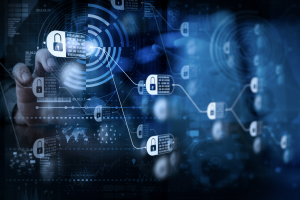Security tends to be a key concern for cryptocurrency investors, but which cryptos are the most secure and can total privacy really be guaranteed? We look at the privacy orientated alt-coins and their pros/cons.

Security can be measured in a number of ways, but in the crypto space, it isn’t usually viewed from a lens of privacy. Most people have an assumption that Bitcoin and other cryptocurrencies have a high level of privacy, especially in comparison to traditional financial transactions. However, due to the nature of public ledgers on the blockchain, every single transaction is available to view. This has even helped law enforcement to track down illegal activities and exchanges which have been hacked.
From the standpoint of cryptography, Bitcoin is very secure and extremely hard for someone to hack. The record of transactions cannot be changed, and this is what makes Bitcoin incredibly secure. But, since these records can be viewed by everyone, Bitcoin is definitely not the most private cryptocurrency out there.
Because of these, other crypto assets have been created that intend to provide a greater level of privacy. They hide transactions so that they aren’t in public view, and this means payments become impossible for anyone to trace. It is true that these cryptocurrencies can be used for illegal dealings, but the vast majority of transactions will be for regular purposes, and people want this feature simply because they want their privacy to remain protected.
Let’s take a look at which cryptocurrencies are the most secure from a privacy standpoint and explore some of the drawbacks that come with them.
How Secure are these cryptos?
The most popular privacy coins by market cap are Monero, Zcash and Dash. Let’s take a look at how effective each one is at providing private transactions. All three have been heavily tested and scrutinised. Most studies have found that Monero is the clear winner at hiding transactions and ensuring privacy.
With Zcash, it is a little more complicated. The crypto has a feature for a shielded pool, but most customers do not use this, and therefore most transactions are not fully private. It remains to be seen how the technology will evolve further and whether individuals will begin using this pool.
Governments have become wary of Monero and other privacy coins, and have made efforts to crack down on them due to the possibility of illegal uses. The US government has even offered $625,000 to anyone that was able to crack the Monero code.
A blockchain intelligence firm known as CipherTrace has also been attempting to figure out the Monero blockchain and possibly monitor transaction flows. They have thus far submitted two patents related to the development of technology that could help implement this. The company has stated that it believes in privacy technology but was focused on helping to find criminal transactions.
There are certain solutions to add further privacy on Bitcoin and these are mixing pools that combine transactions to muddle addresses which makes it much more difficult for anyone to trace.
Global responses to private cryptos
Many governments across the world have begun to take a harsh stance against privacy coins. As you can imagine, they dislike the idea of private currencies that can be used for serious crimes such as extortion, money laundering, trafficking, and many others. South Korea has even outright banned the trading of Monero and Zcash, and many exchanges also refuse to list these coins.
Despite this, the popularity and demand for privacy coins remain high. This isn’t too hard to believe when you look at the significance of personal data and recent scandals involving Google and Facebook. Individuals are far more aware of their online presence and more determined to protect their privacy.
Additionally, people are aware of the emergence of government-backed digital currencies such as the digital Yuan created by China. There are fears that these central bank cryptocurrencies could allow governments to spy on their citizens and closely monitor how they spend their money. The growing popularity of privacy coins is linked with this fear.
The bottom line is that you should always be careful when making crypto transactions but especially so with privacy coins that have been under the spotlight. Most privacy protections need to be manually activated so don’t assume your transaction will automatically be private.
